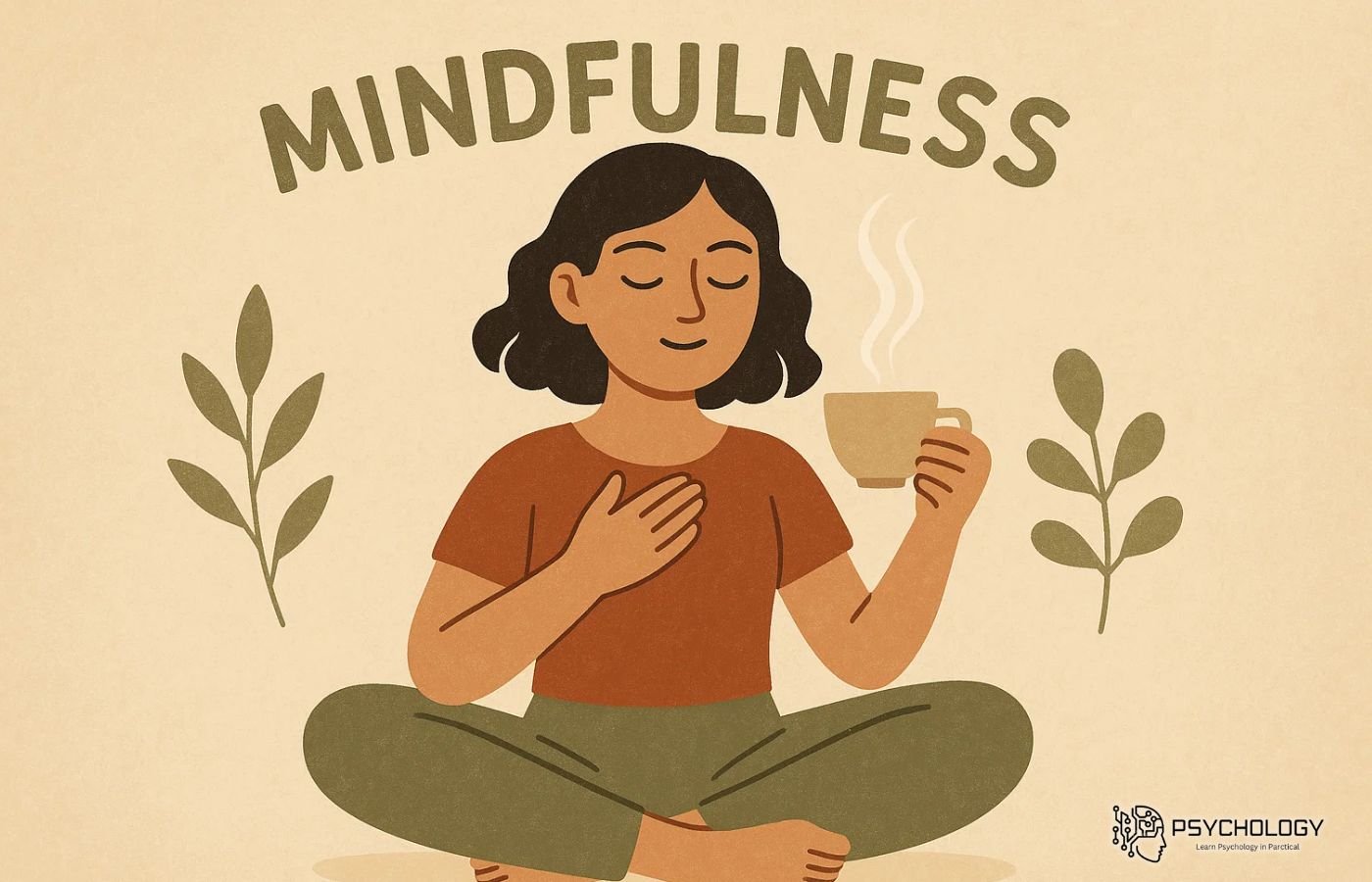 Sometimes life feels like it’s moving too fast. The noise, the pressure, the endless list of things to do it can all be overwhelming. In South Asian families, especially, we’re expected to keep up with responsibilities, juggle emotions quietly, and still perform well. That’s where mindfulness comes in. Not as a fancy trick, but as a real, simple way to feel better every day.
Sometimes life feels like it’s moving too fast. The noise, the pressure, the endless list of things to do it can all be overwhelming. In South Asian families, especially, we’re expected to keep up with responsibilities, juggle emotions quietly, and still perform well. That’s where mindfulness comes in. Not as a fancy trick, but as a real, simple way to feel better every day.
Let’s talk about what mindfulness really means, how to practice it in daily life, and why even five minutes a day can change how you feel, think, and relate to others.
What Does Cultivating Mindfulness Really Mean?
Mindfulness means being fully present. It’s when you bring your attention to what’s happening right now without judgment, without distraction. You don’t try to change it or analyze it. You just notice it, feel it, and accept it as it is.
Mindfulness vs. Just Paying Attention
Paying attention can be goal-based. You might concentrate on a task just to get it done. But mindfulness is softer. It’s gentle awareness, where you stay open, kind, and grounded. You notice your breath, your thoughts, your surroundings without rushing past them.
Why It Matters in Daily Life
Mindfulness improves:
Mental clarity
Emotional balance
Self-awareness
Reaction control in stressful moments
Instead of reacting with anger or anxiety, you pause. That pause is everything.
Common Barriers to Mindfulness in South Asian Life
Living in Pakistan, India, or Bangladesh, mindfulness often feels like a luxury. But actually, it’s a necessity. The constant pressure from family, society, and expectations can cloud our minds.
“Log Kya Kahenge” and Mental Noise
The fear of being judged “what will people say?” creates endless overthinking. Mindfulness helps quiet that background noise, even if just for a moment.
Overthinking and Mental Clutter
We think about the past. We worry about the future. Meanwhile, the present moment gets ignored. That’s where life is happening but we miss it.
Mindfulness brings you back to the now, where your real power lies.
Simple Ways to Practice Mindfulness Daily
Mindfulness doesn’t require a meditation mat or a fancy app. Here are simple, everyday ways to practice it.
Start With the Breath
One deep breath. In and out. Done with awareness, it can calm your body and focus your mind. Try this once an hour.
Mindful Mornings
Don’t check your phone the second you open your eyes. Sit up, stretch, and ask yourself: How do I feel today? Just that question creates a pause.
Eat Without Screens
Chew slowly. Notice textures and flavors. Put down your spoon between bites. This isn’t just healthy it’s peaceful.
Mindful Walking or Chores
Walking to school? Washing dishes? Cleaning your room? Do it with your full attention. Notice your steps, your breath, your movements. These simple acts become mini-meditations.
What Are the 5 C’s of Mindfulness?
These five qualities help you not only practice mindfulness but also make it stick.
| C | Meaning |
|---|---|
| Curiosity | Be open like a child. Ask: “What’s happening in me right now?” |
| Compassion | Be kind to yourself, especially when you mess up or lose focus |
| Courage | Stay with hard feelings instead of running away |
| Clarity | See your thoughts clearly instead of being tangled in them |
| Commitment | Show up again tomorrow even if today was messy |
The 5 C’s help mindfulness become a daily friend, not a chore.
Mindfulness for Mental Health and Emotional Strength
Practicing mindfulness helps with stress, anxiety, and low self-esteem. Here’s how.
It Breaks the Cycle of Auto-Reaction
Let’s say someone says something rude. Without mindfulness, we might snap back, or spiral into overthinking.
With mindfulness, we notice our reaction first. That moment of awareness gives us choice. Do we reply calmly? Do we say nothing? That’s real strength.
Helps You Notice Triggers and Patterns
Are you always anxious before family gatherings? Does your mood drop after scrolling social media?
Mindfulness helps you spot these patterns early, so you can respond with care.
Tips to Keep Going When It Feels Hard
Let’s be honest: mindfulness isn’t always easy. Our minds love to wander. Here are some gentle ways to stay with it.
Set a “Mindful Alarm” Once a Day
Let your phone remind you to pause. At that moment, just breathe and notice your body. That’s all. One minute is enough.
Pair It With Something You Already Do
Mindfulness grows best when it’s attached to habit. You could:
Be mindful while brushing your teeth
Pause before drinking tea
Check in with yourself before sleep
The goal isn’t perfection. The goal is presence.
Final Thought: It’s Not About Doing More, But Being More Present
Mindfulness doesn’t ask you to change your whole life. It asks you to live your life more fully as it already is.
Whether you’re making daal, walking to tuition, or putting a child to bed, those are your mindfulness moments. You don’t need anything new. You just need attention, patience, and care.
In a world full of distractions, mindfulness is a quiet revolution one moment at a time.

Imran Shahzad, M.Sc. Psychology (BZU, 2012), shares real-world mental health tips and emotional guidance in simple English for everyday South Asian readers. He worked closely with individuals facing grief, emotional loss, and life transitions, translating real-world psychological experiences into practical guidance for everyday readers.

